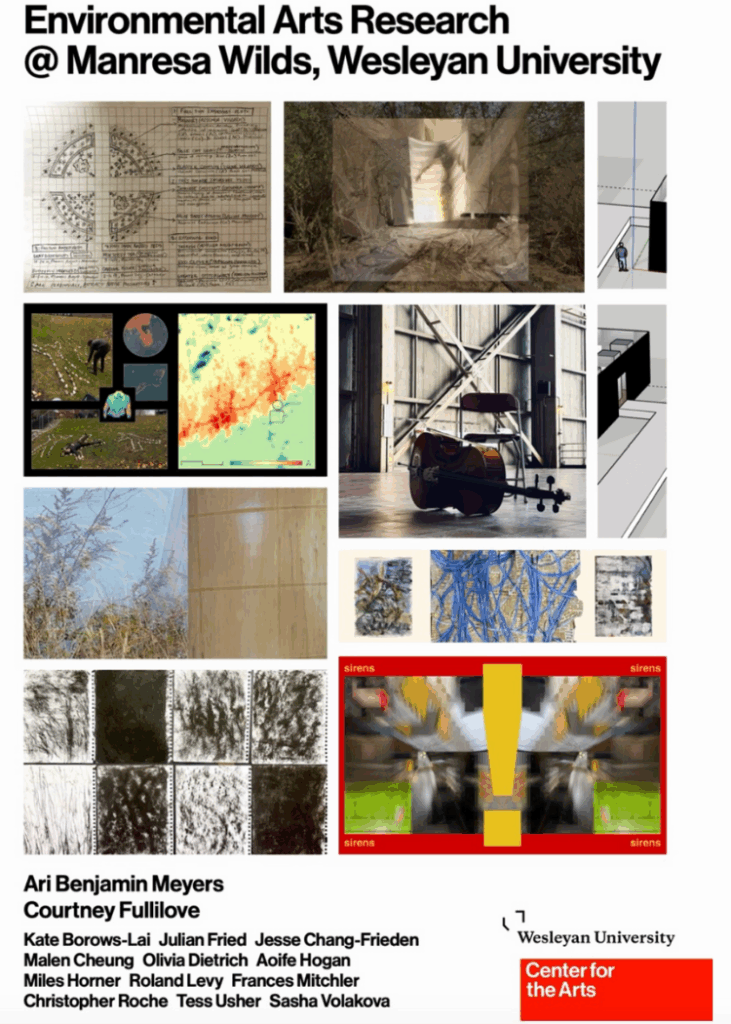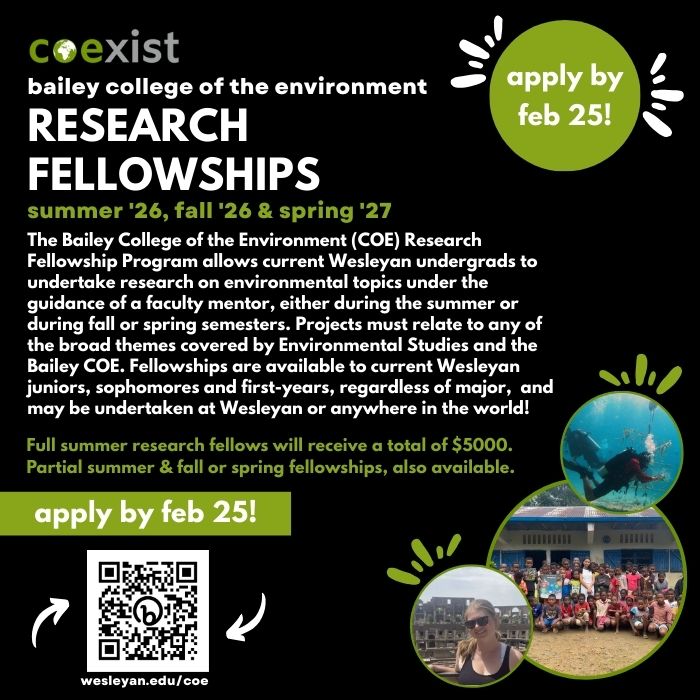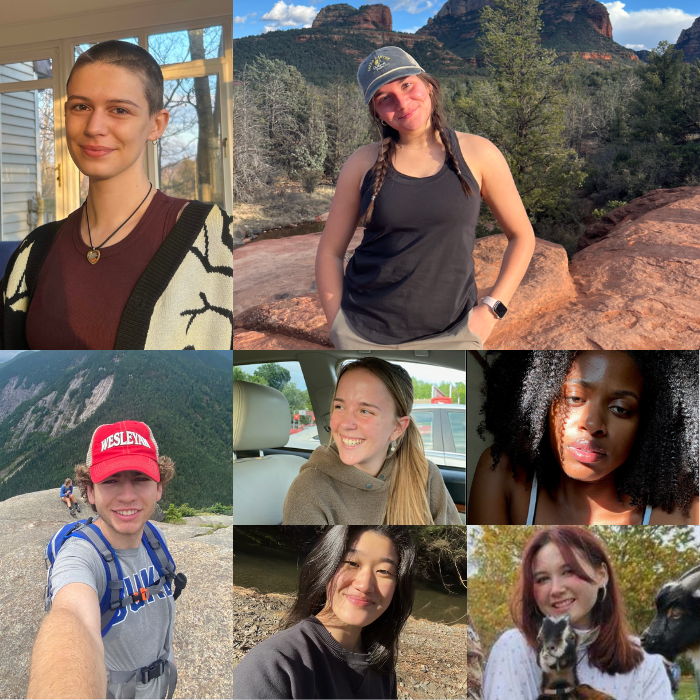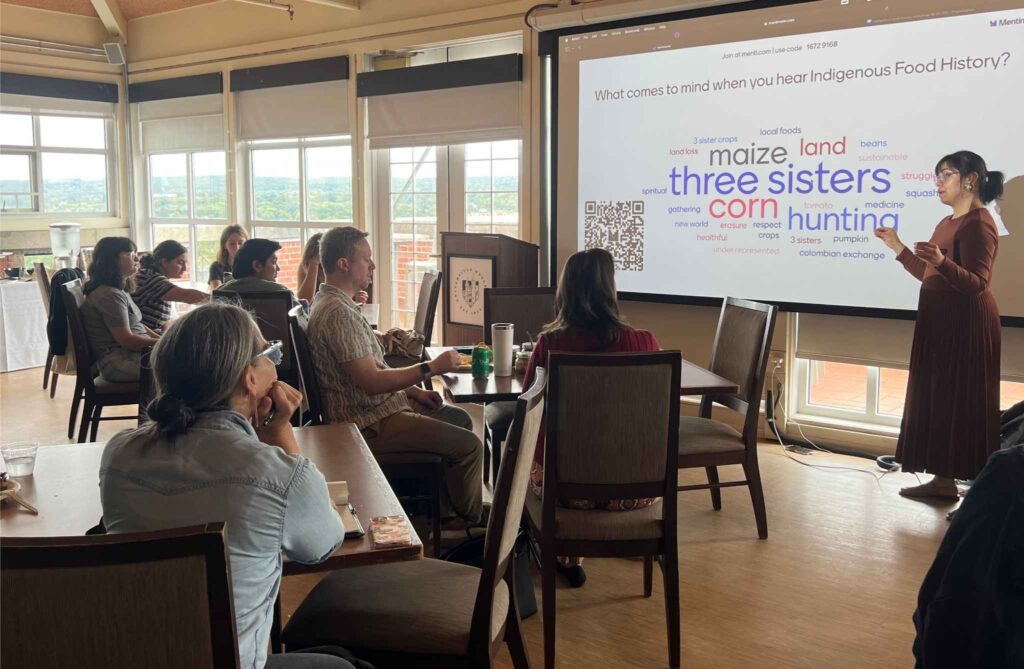By Courtney Fullilove

During fall 2025, students and faculty from across Wesleyan pursued a coordinated set of research and creative projects at Manresa Island in Norwalk, Connecticut. The 25-acre island within a tidal marsh system of the Long Island Sound served as a Jesuit retreat in the late 19th and early 20th centuries before being acquired by Connecticut Light and Power for the construction of a coal-fired power plant. Over its 50 years of operation, the plant transitioned from coal to oil and expanded the land mass by roughly 100 acres, largely through the disposal of coal ash and dredge spoils. Since the plant’s decommissioning and abandonment in 2013, the island has developed an urban ecology marked by remnant industrial structures, an early-successional birch forest rooted in ash deposits, and resident populations of turkey, deer, and osprey along its rocky shoreline.
The semester brought together students and faculty in the humanities, arts, and earth and environmental sciences to explore a post-industrial coastal landscape in rapid socio-political and ecological transition. (The site is proposed as a park providing public shoreline access, funded by a philanthropic 501(c)3.) Students in Energy Legacies and Ecological Futures (HIST161/ENVS249/STS161), taught by Courtney Fullilove, launched the Manresa Stories Oral History Project, interviewing former power plant workers, community members, and others with long-standing ties to the island. Working in partnership with University of Connecticut’s Engaged, Public, Oral, and Community Histories (EPOCH) and Central Connecticut State University’s Public History Programs, students used the digital oral-history platform TheirStory to record, archive, and exhibit community histories. George Schunk ‘28, the GIS assistant for the course, developed a StoryMap integrating archival materials gathered by the class, including company logbooks, city planning reports, photographs, and artifacts recovered on site. Through this work, students explored how a tidal estuary formed in glacial retreat some 10,000 years ago became, by the 21st century, a site of decayed fossil fuel infrastructure and chronic pollution.
In Soils, Dana Royer’s students sampled soils, leaves, and tree cores in the birch forest that has established itself on coal-ash deposits in the last fifty years. Their measurements confirmed the higher organic carbon content of the ash relative to a nearby control site. Tree ring analyses offered a record of environmental change over the lifetime of the trees, while samples of gray birch showed that the species concentrates toxins in its leaves but not its wood, indicating possibility for phytoremediation strategies.







